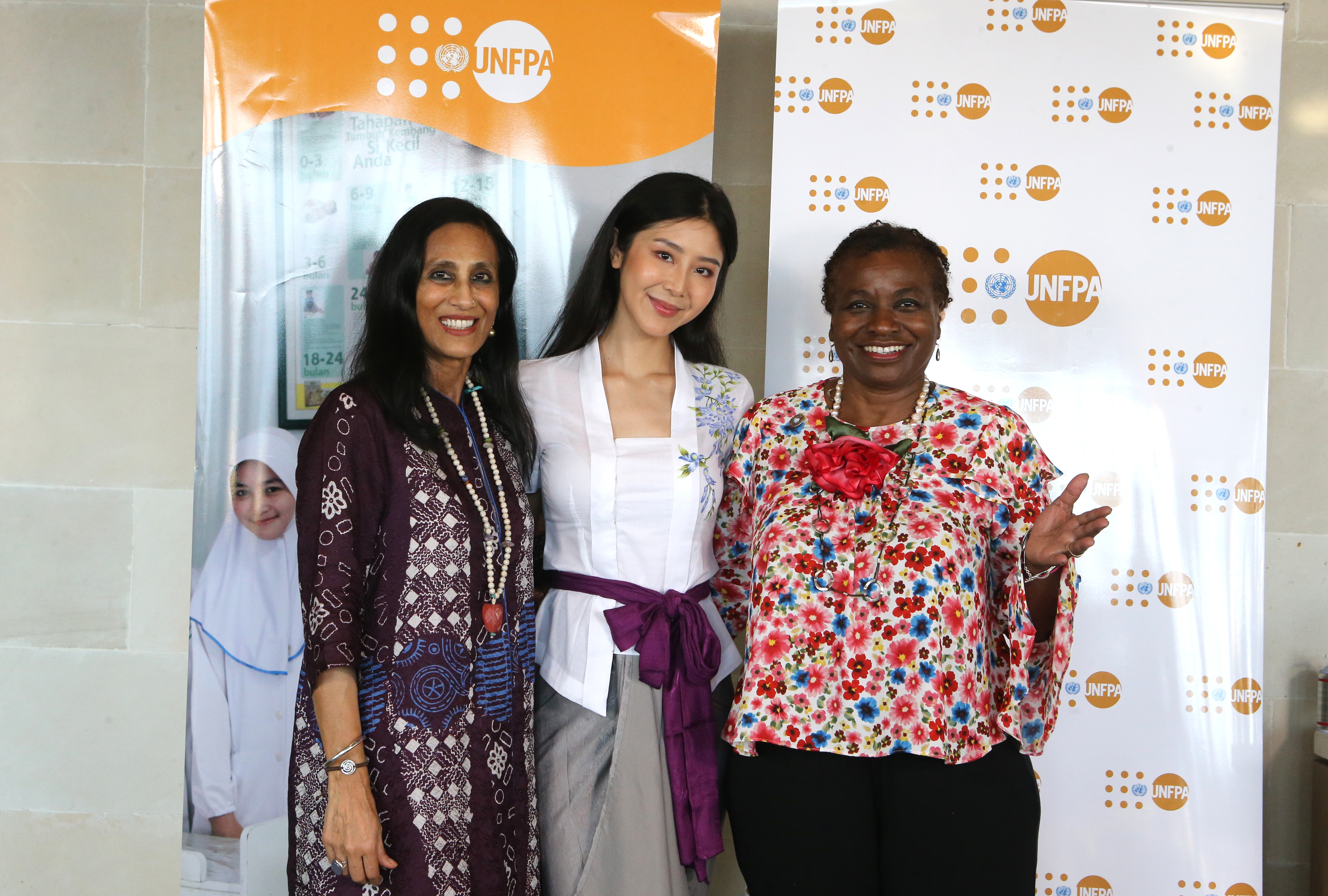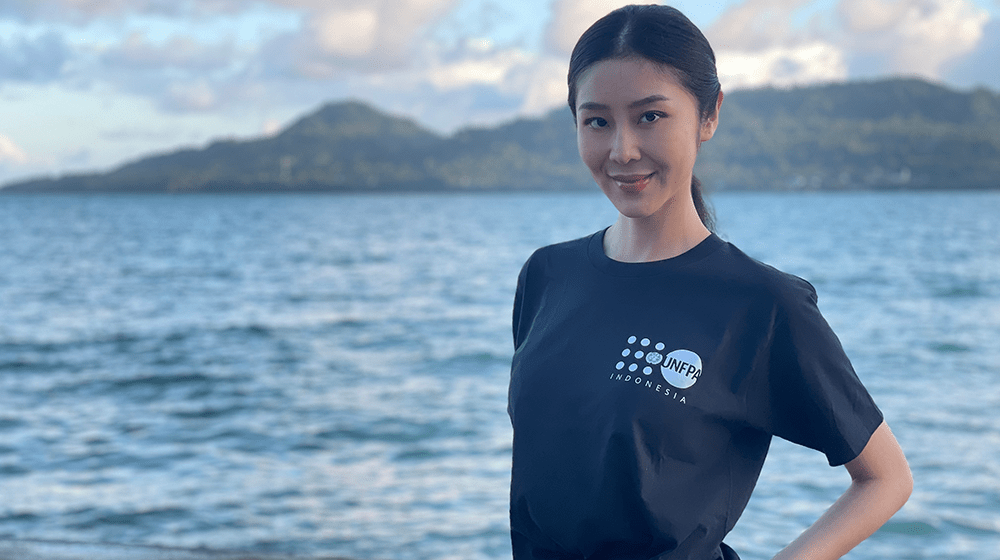To many Indonesians, Putu Ayu Saraswati is the 2020 Environment Queen of Indonesia (Putri Indonesia Lingkungan 2020). She is so much more than a beauty queen, however. An entrepreneur and a bachelor of medicine, the 26-year-old woman is a passionate speaker about children’s and women’s rights.
And now, Ayu is our UNFPA Indonesia Champion. “It’s time to break the taboo around sexual and reproductive health,” she says, firmly.
Below, Ayu shares with us what she wants to achieve in her new role and her wishes for women and girls in Indonesia (This conversation has been edited for length and clarity).
What inspires you to be a UNFPA Champion?
UNFPA envisions a world that I want to live in, a world where every pregnancy is wanted, a world where every child birth is safe, and every young person’s potential is fulfilled.
And I really believe that being able to work alongside UNFPA to achieve that is a blessing for me.
What would you like to achieve as a UNFPA Champion?
What I wish to achieve as UNFPA Champion is surely our shared common goal that is the three zeros, or three transformative results; ending preventable maternal death, ending unmet need for family planning, and ending gender-based violence and harmful practices such as female genital mutilation and child marriage.
I want my roles, activities, and campaigns as UNFPA Champion to break the taboo and shame around sexual and reproductive health.
With UNFPA, together, we can get more people to discuss, we can get more people to care and act on sexual and reproductive health that is such an important issue and everyone should have access to in order for them to live a dignified life.

What are the most pressing issues that women and girls face in terms of gender equality and sexual and reproductive health?
In my opinion, one of the most pressing issues that we’re facing right now is the fact that we are living in such a highly patriarchal society. And that causes the society in general, and sadly including women and girls, to internalize and to believe that gender inequality is something that is “normal”.
What I mean is that we can see that there are so many women and girls that are raised and brought up as if their lives are predestined. There are women and girls that have never even had a choice over their lives, over their body, and decisions that they make. They have no access towards healthcare, education, and basic human rights.
The result is the fact that nowadays we have a very high maternal mortality rate and it goes to a vicious cycle because these women never have a choice and access to basic human rights. Women and girls eventually become even more prone to gender-based violence, and that I think is an urgent issue that we all should fix together.

What do you think we must do to make sure everyone lives in dignity, free from violence and discrimination?
I am the firstborn out of three sisters. I have no brothers. I was born and raised in Bali, that as many of us already know, is a highly patriarchal society. So I grew up hearing so often people asking my parents, “So when are you going to have a son?”. Some people even ask whether we’re going to consider adopting a son because having just daughters is not seen as a complete family in our society, at least the one that I live in.
But I’m very fortunate because I have parents that are completely supportive of their daughters. They treat, educate, and shape us in a way that we don’t see our gender as a barrier to success and achievement. This is something that I’ve experienced firsthand, and this is the spirit that I want to carry and share throughout Indonesia and the world.
What is your message to women and girls in Indonesia?
To my sisters out there, I just want to share that we women have what it takes. We are deserving of a life of joy, of purpose, of dignity, and above all, a life that we choose. And please, do not settle for less. If that is not the kind of life that you’re living now, please speak up and please reach out for help because you are not alone and we are all here for you.
Rahmi Dian Agustino
Communications Analyst, UNFPA Indonesia


